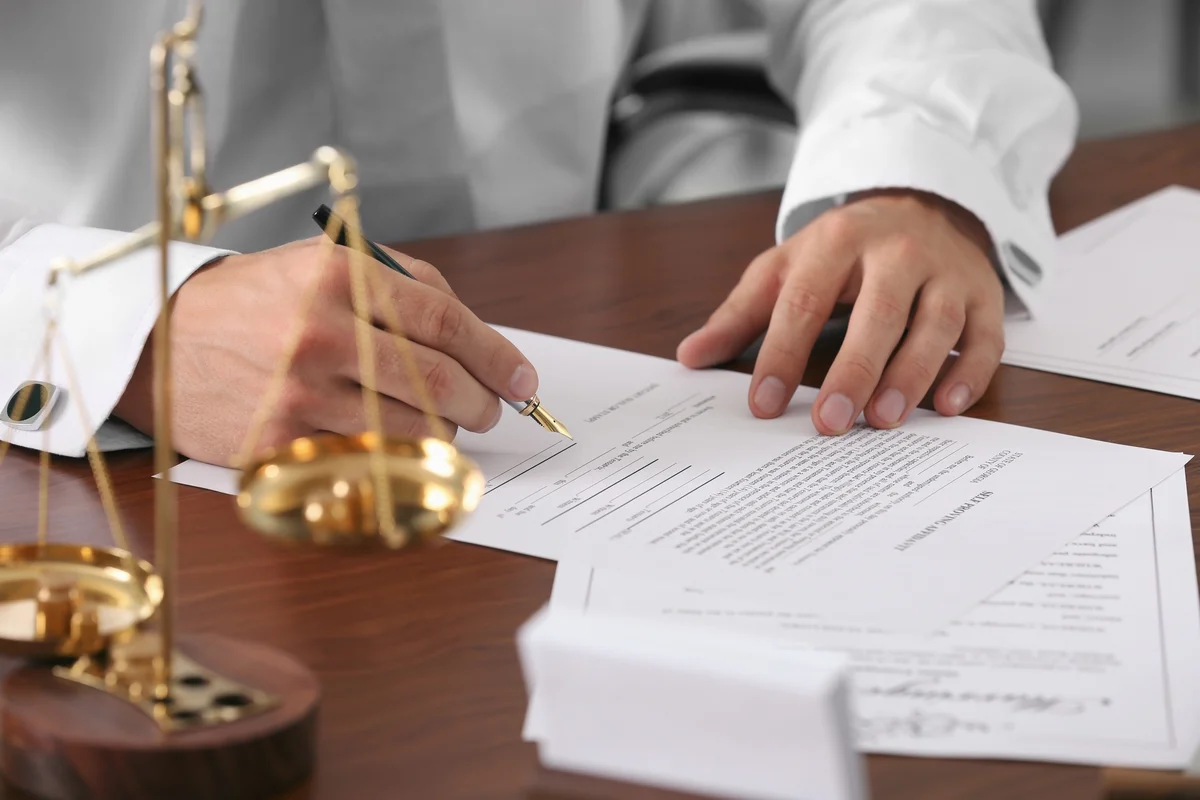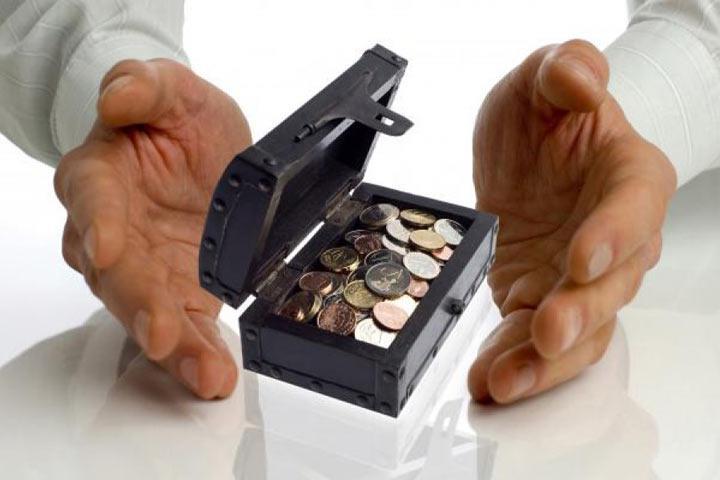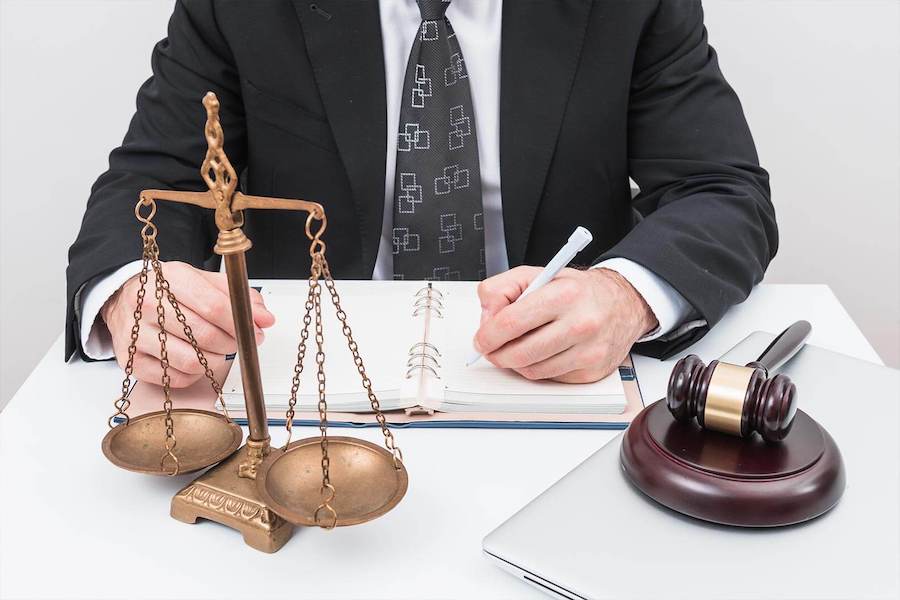Inheritance of bank deposits

Inheritance registration is considered a standard procedure. The property that a person has by the date of death is called a hereditary mass. Deposits and funds in accounts also represent “property”. Depending on what a person inherits, certain difficulties may arise in the procedure. In this article, you will learn more about getting access to bank deposits and funds in the testator’s current accounts, as well as his shares, bonds, mutual funds, insurance payments and savings in the pension fund. The procedure is relevant for citizens living in Russia and Kazakhstan.
In hereditary matters, an important role is played by such a document as a will. Usually, most people draw it up in advance, in the presence of a notary. In this document, the property owner distributes his assets among certain people. Some testators even pre-make copies of the will and give them to future legal successors.
Today, there are 2 ways to dispose of money that is in the bank: a will or a testamentary disposition. If the testator has not made an order, then his deposit will be inherited in accordance with the procedure established by law.
A will is a document in which the owner of assets expresses his will regarding the property in the event of death. As a rule, the document is drawn up by a notary. When making a will, be aware that it is sometimes not fully executed. In the legislation, there is such a thing as a”mandatory share”. This definition refers to the share of inheritance that must necessarily be given to a certain circle of close people, even if they are not included in the will. This group includes: disabled people, disabled parents and spouses, dependents, and minor children. The size of the mandatory share must be at least half of the property to which the relative can claim rights under the law.
In addition, you can specify the conditions for issuing a deposit in the will. How to understand? For example, the testator has the right to indicate a testamentary refusal in it. You can cancel the document or change it many times. At the same time, the testator is not obliged to coordinate his actions with the legal successors or explain the reason to the notary. There are several ways to cancel a will. You can prepare an order to cancel it or create a new one. By law, a valid will is considered to be something that has a later date of registration. Previous documents are valid only in the part that was not changed in subsequent documents.

There are situations when the heirs are immediately registered in the contract with a financial institution. For example, a person can include in the insurance a recipient of funds, to whom the company will be obliged to issue insurance in the event of the death of the policy owner.
When opening an account or deposit with a bank, the client can write a testamentary disposition. This document specifies the person who will manage the funds in the event of his death. This document has the same legal force as a will. However, it concerns a specific deposit or invoice and does not require notarization.
What are the distinctive features of a testamentary disposition? First, the document applies only to the accounts of a specific credit institution, while the will can specify any property of the testator, including accounts. A testamentary disposition is made free of charge at the bank where the funds are located. One copy of the order remains with the bank, and the other copy is kept by the client. If several accounts are opened in the same bank, you can specify them in one order. Also, the testator can immediately allocate shares in it that are due to the heirs, and the conditions for their issuance that do not violate civil law. You can cancel or change the order.
If the order contains items that contradict the will, then the document issued at a later date will be valid. For example, the grandfather indicated his grandson Kostya in the order for the deposit, and then made a will with a notary and indicated that the granddaughter Katya would be the heir to this deposit. Due to the fact that the order was issued earlier, it automatically loses its validity. The contribution should go to Katya.
How do I get money from the bank after my death?
To get access to the bank accounts of a deceased relative, you must provide one of the following documents::
- certificate issued by the notary to the executor of the will;
- certificate of ownership of a part of the jointly acquired property;
- agreement on the division of property specified in the inheritance;
- notary’s resolution on reimbursement of expenses related to the death of the testator;
- certificate confirming the right to inheritance;
- a copy of the court decision, etc.
How is the contribution divided between the heirs? If the owner of the deposit did not make a will or order, then his contribution will be inherited in turn. The order of inheritance is spelled out in the law. The Civil Code defines 7 queues. The first to inherit “stand” children, parents of the testator, the second half of the deceased. In this case, the inheritance will be divided between them in equal shares. Second in line are sisters, brothers, grandparents.
Accepting a legacy share means that you accept all assets due, whatever they are, and wherever they are located. Inheritance means not only the property of the testator, but also debts that will need to be paid based on the share of the accepted inheritance.
How do I get my deceased spouse’s contribution?
Property purchased in marriage is considered to be jointly acquired, unless otherwise stipulated in the marriage contract. This fact means that if the testator has a surviving spouse, then he can allocate the marital part from the inheritance, according to the law it is 1/2 of the share. Again, this condition will be met if the co-ownership regime has not been changed in the prenuptial agreement.
Currently, spouses are allowed to make a joint will, which they can cancel during their lifetime or at the will of the spouse who remained alive. In case of divorce, this will becomes invalid.
The surviving spouse can give up part of the inheritance. However, in this case, you need to take into account that after the notary formalizes the refusal, it will no longer be possible to cancel it, the marital share will become part of the common inheritance.
Inheritance can also become the property of the state. This is usually due to:
- absence of a will or order;
- absence of legal successors;
- assigning the status of unworthy citizens to heirs who cannot inherit or are completely excluded from inheritance;
- non-admission of heirs to their rights;
- refusal of legal successors from inheritance without specifying the beneficiary.
How do I find deposits of a deceased relative?

If you do not know for sure whether your relative had deposits or not, you should contact a notary. In simpler words, you need to open an inheritance file within six months from the moment of the testator’s death. During this time, the notary will collect information about the financial assets of the deceased person.
How do I get money from a deceased person’s account?
Many users are aware that information about customer accounts and deposits is a bank secret. Even if a client dies, the commercial bank does not provide this information to everyone. This is also the case with registrars and depositories; they also do not disclose information about the holders of securities.
Obtaining certificates of accounts, deposits and other financial instruments is within the competence of the notary who will conduct the inheritance business, or the person whom the testator indicated in the order. You should not believe the advertising of dubious companies that promise to find the savings and accounts of deceased people, so scammers are now operating.
If a loved one still managed to make a will or personally kept their assets in some notebook or diary, then it will be very easy to find them. If there are no records, then you need to find an experienced notary as soon as possible.
To speed up the search, heirs should provide the notary with all available financial and legal documentation with the following organizations: bank, pension fund, brokerage companies and trust managers, etc. To the notary, you must bring all the documentation that you can find, including account statements. How can these statements help? Some financial companies do not enter into contracts with their clients, but the statement will help you understand which company manages the assets of the testator.
Heirs not only receive money, securities and other assets, but also the obligations of the testator. Therefore, ask the notary to also raise the testator’s credit history to know exactly what debts you will receive the inheritance with.
If you do not find information that the deceased was a client of financial companies, ask the notary to make a request to well-known banks, as well as to financial institutions.
It often happens that people get loans and credit cards in the fin. institutions where they already have an account or deposit registered. According to the testator’s credit history, it will be possible to detect not only his debt, but also cash, as well as other savings.
Also, give the notary the task of sending requests to insurance companies to find out whether the deceased has open insurance policies or not.
If you know for sure that the testator has invested money in securities, tell the notary about it so that he will send requests to the registrars and depositories.
You have the right to apply only to the state pension fund in order to find out the place where the deceased relative collected pension savings.
In addition, instruct the notary to make a request to the tax authorities, so you can find out what property the testator owned, and what income it brought him.
The notary will add to the inheritance mass all the property of the deceased person found by him. As a rule, inherited property is not subject to taxation, which means that you will not have to pay a state fee.
How much does a notary’s request to the bank cost? Naturally, the notary does not search for assets “for thanks”, but charges a fee for this. The cost of services depends on the number of requests that he will need to send to various authorities.
How do I get money from a deceased relative’s account?

The heir will be able to dispose of the assets after receiving a certificate of inheritance rights from a notary.
You must come to the financial institution with a document and passport, and then you will be granted access to the testator’s accounts. The bank can also request other documents, such as a client’s death certificate, a will, papers proving a family relationship with the testator, personal account details for transferring funds, etc.To avoid running to the bank several times, request the entire list at once.
If you inherited a valid deposit, you don’t need to close it, because if you terminate the contract early, you may lose interest. It is best to wait until it ends, and then withdraw the entire deposit in its entirety, including the accumulated reward.
Without a document on the right to inheritance, the legal successor can only withdraw money from the testator’s account for his burial. But this will require a resolution from a notary. Minor children inherit funds held in bank accounts and deposits in accordance with a special procedure.
Also, the deceased can keep funds in the cell of a financial institution. The procedure is similar: the notary must request information from the bank. In response to the request, the bank will report what is in the cell. As soon as you have a document confirming the right to inheritance, you will be able to take the property due to you by law. The finance company may additionally request confirmation that the property in the box is the property of the lessee. However, this requirement is relevant only in cases where this condition is stipulated in the cell rental agreement.
By such actions, the financial institution insures itself against the risk that the client kept other people’s belongings in the safe deposit box in addition to their own. If a real owner of valuables appears in the bank in the future, he will get into trouble. The bank will have to return the owner’s property to the owner or make up its value in full by a court decision. For this reason, banks keep valuables in their long-term storage until the legal successors present proof of ownership.
Your loved one could also keep funds not only in accounts, but also in securities and other financial instruments of the exchange market. As a rule, securities are purchased through a broker or trustee. If you come across a contract with such a company, the notary will be able to find the testator’s securities. In addition, they will find out if they still have funds in their account.
In this case, the notary will issue each heir 2 documents on the right to inheritance. One of them is drawn up for securities, and the second for money. After receiving the document, you need to contact your broker or trustee with it and your passport.
The order of inheritance of securities differs from the inheritance of deposits. This is due to the fact that financial instruments are held in accounts with the depository. In addition, accounting for valuable assets is maintained on accounts in registers.
The broker or manager will provide the notary with information about which company the deceased relative’s papers are listed in. Further, the notary must send a copy of the document on the death of the holder to the place where the papers are located. As soon as the depository or registrar receives this document, it will immediately block the movement of the account until the securities are legally transferred to the new owner. In some cases, the account is blocked immediately after receiving a request from a notary.
If the contract with the broker or manager was not found, then there are 2 options. The first method is to instruct the notary to send requests to all popular brokerage and management organizations. They, in turn, will report whether the deceased was a client of their company or not, as well as whether he has assets with them. The second way is to contact the registrar or the depository directly, where you can get information about all the assets listed on a certain person’s deposit account.
As a rule, financial instruments cannot be divided into parts based on the wishes of the owners. How do I understand this? For example, the deceased had 55 shares, he has only 2 legal successors, and he did not have time to leave a will. They won’t be able to share it equally. There are several possible solutions to this problem. Legal successors can agree among themselves before the notary issues a document on the right to inheritance. One assignee can choose an extra share, and the other can take the value of half of it in cash.
The second option is that after receiving the document on the right to inheritance, conclude a notary agreement on the division of property, where you specify how many shares will be due to whom.
If both legal successors are not going to immediately sell the securities, they can register an account intended for joint shared ownership with the registrar or with the depository, then transfer all the valuable assets to it. By doing this, they will be able to sell 1 extra share, and divide the remaining shares equally, then transfer them to their accounts. However, if you choose this way of solving the problem, you should ask the depository in advance about the commission that you will need to pay for the transfer of securities.
How do I inherit an insurance payout? The client has the right to immediately include in the contract a person authorized to receive a payment in the event of his death, then it will not become part of the inheritance mass and other legal successors who are not included in the insurance contract will not be able to “encroach” on it either by will or by the inheritance queue established by law.
If the deceased person has included several recipients of money in the contract, they must notify the insurance company about this within one month from the moment of the death of the policy holder. Of course, the contract may also specify a different time of application. If the recipients do not inform the insurance company about the death of the policyholder during the time allotted for notification, it has every right to refuse to pay the insurance amount.
If the owner of the policy did not include the beneficiaries in the contract or they also died, then the heirs can claim payments. To do this, they should contact the insurer after receiving a notarized document confirming their inheritance rights. The insurance payment will be issued to all heirs in equal parts. The term of payment is fixed in the contract with the insurer or specified in the insurance rules. In most cases, it does not exceed 15 days.
How do I get my deceased husband’s contribution from the pension fund?
The conditions and procedure for receiving assets from the pension fund are determined based on the type of pension of the testator. There is a distinction between a state pension and an additional one.
If this is a state pension, then you have every right to inherit all your savings. As a rule, many citizens have similar savings. These funds can be kept in both state and non-state pension funds. If your partner has been collecting funds for an additional pension, you can also get them by inheritance.
The owner of pension assets can independently appoint successors during their lifetime, not necessarily that they are relatives. The testator can also determine the share of savings for each of them. To do this, you must submit an application indicating the heirs to the pension fund. If the testator did not leave such a statement, then only representatives who are indicated in the first or second queue for inheritance will be able to receive money. If the deceased had no relatives in either the first or second line, then the savings will go to the reserve of the pension fund.
To get access to the deceased’s funds, relatives should contact the pension fund and find out whether the deceased had savings or not. If they exist, the pension fund will tell you where to look for them.
You need to come to the pension fund in person. You must have the following documents with you:
- passport;
- Testator’s SNILS;
- death certificate;
- papers proving a family connection with the deceased.
If you know for sure that the testator has appointed you the legal successor of your pension savings, then you do not need to prove the relationship. But you will need the SNILS of not only the deceased person, but also yours.
When you find information about where your loved one’s savings are located, do not delay in any way. Write an application to the pension fund within six months from the date of death of the owner of savings. If for some reason you do not make it on time, then you will be able to withdraw money from the pension fund only by a court decision.
The amount of pension payment is determined based on the moment when the testator started receiving funds from the pension fund. In the event that he did not manage to become a pensioner, the legal successors will receive all their savings. If the pension has already been assigned, the amount of payment will depend on its type. As a rule, the payment of funds will occur only after 7 months from the date of death of their owner.
Each NPF has its own rules, and this also applies to the inheritance of pension savings. Usually, these provisions are specified in the contract with the fund. If the client has never received an additional pension, then the successors will be able to receive all the savings of the deceased. Sometimes the contract specifies a partial payment of savings, and in some cases the savings are not paid to the heirs at all.














Leave a Reply